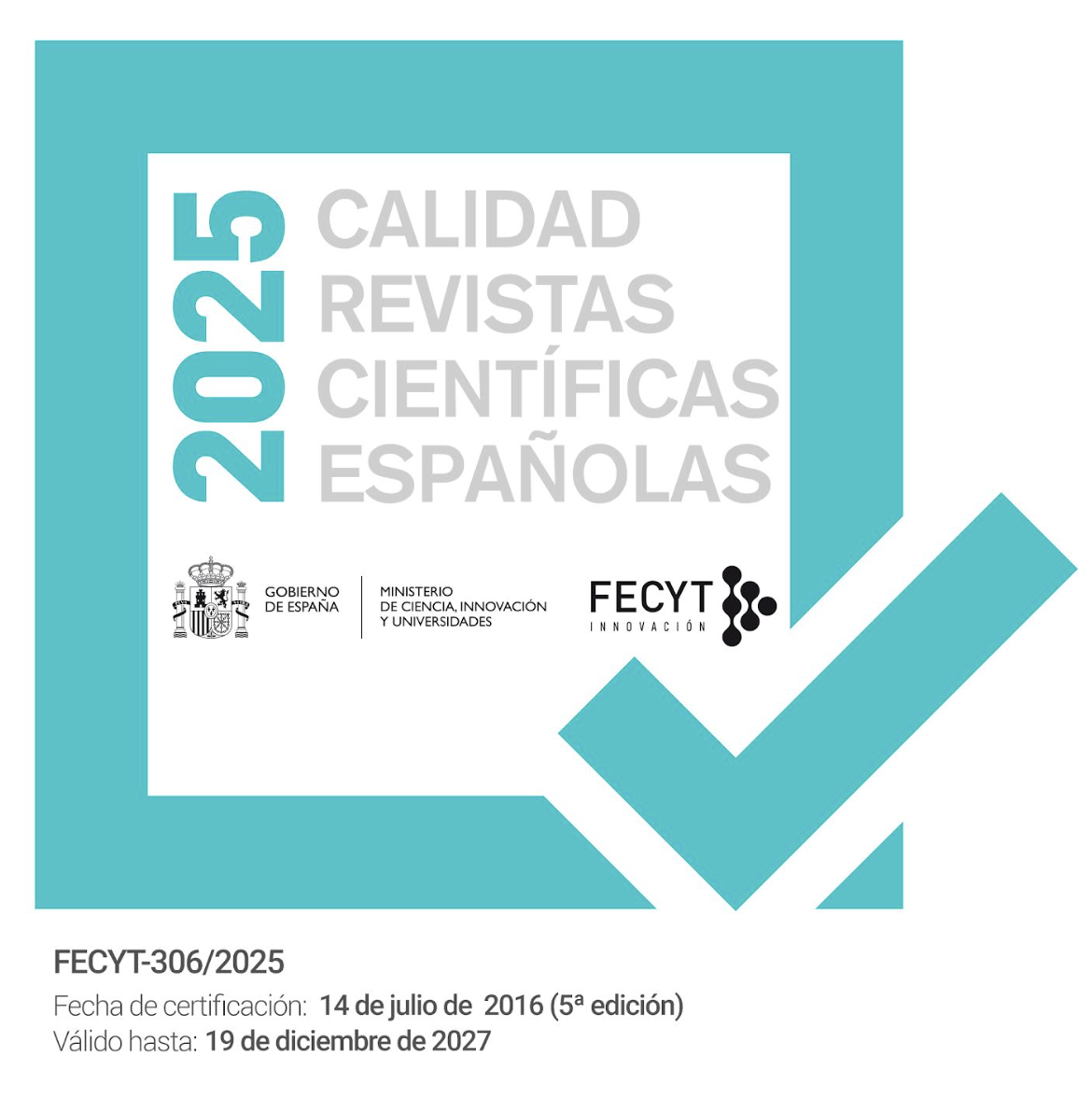Strategic generations and political change: the generation of young anti-Franco dictatorship and its impact on the 15M movement in Cantabria
DOI:
https://doi.org/10.22325/fes/res.2022.90Keywords:
strategic generation, youth activism, political socialization, political culture, 15M movement., strategic generation, youth activism, political socialization, political culture, 15M movementAbstract
This article seeks to elucidate whether the political generation of young anti-Franco activists -which would become strategic due to its influence on the political change that took place during the Spanish Transition to Democracy period- was also strategic in the 15-M movement. To this end, qualitative research has been carried out in Cantabria, using the methods of thematic life history and documentary analysis. The data obtained from the sample selected has demonstrated their participation in the 15M movement, although not with the relevance of a strategic generation.This result could be explained by the life clycle effect or by the existence of different ways of experiencing activism by two generations (that of the young Transition period activists and that of the young 15M activists), which become politically socialised in two very distinct contexts, with the first being in dictatorship and the second one in democracy.
References
Alberich, T. (2016). Desde las Asociaciones de Vecinos al 15M y las mareas ciudadanas [breve historia de los movimientos sociales]. Dykinson.
Alberich, T. (2017). Éxito, crisis y descendientes de los movimientos de indignados. Estudio de caso y aprendizajes para la acción social. Revista Española del Tercer Sector, 37, 73-108.
Bertaux, D. (2005). Los relatos de vida. Perspectiva etnosociológica. Bellaterra.
Benedicto, J. (2017). ¿Una juventud marcada por la crisis? Informe Juventud en España 2016. INJUVE, 15-33.
Calvo, K., Álvarez, I. (2015). Limitaciones y exclusiones en la institucionalización de la indignación: del 15-M a Podemos. Revista Española de Sociología, 24, 115-122. https://recyt.fecyt.es/index.php/res/article/view/65426
Castells, M. (2015). Redes de indignación y esperanza. Alianza.
Fourcade, M., Schofer, E. (2016). Political Structures and Political Mores: Varieties of Politics in Comparative Perspective. Sociological Science, 3, 413-443. https://doi.org/10.15195/v3.a19
Funes, M. J., Ganuza, E., García-Espín, P. (2020). (Eds.). El descontento movilizador. Cultura y discursos sobre la política en un marco de crisis (2011-2013). CSIC.
Gamson, William A. (1992). Talking Politics. Cambrigde University Press.
Hammersley, M., Atkinson, P. (2004). Etnografía. Métodos de investigación. Paidós.
Hunt, S., Benford, R., Snow, D. (2001). Marcos de acción colectiva y campos de identidad en la construcción social de los movimientos. En E. Laraña, J. Gusfield (Eds.), Los nuevos movimientos sociales. De la ideología a la identidad (pp. 221-249). CIS.
Lobera, J., Rogero-García, J. (2017). Medición de la cristalización electoral de un movimiento de protesta: de la indignación al voto. EMPIRIA, 38, 151-176. https://doi/empiria.38.2018.19715
Mannheim, K. (1993). El problema de las generaciones. Revista Española de Investigaciones Sociológicas, 62, 193-242.
Maravall, J. M. (1978). Dictadura y disentimiento político. Obreros y estudiantes bajo el franquismo. Alfaguara.
Maravall, J.M. (1985). La política de la transición. Taurus.
McAdam, D., McCarthy, J. D., Zald, M. N. (1988). Social Movements. En N.J. Smelser. (Ed.), Handbook of Sociology (pp. 695-737). Sage Publications.
McAdam, D. (1989). The biographical consequences of activism. American Sociological Review, 54(5), 744-760. https://doi. org /10.2307/2117751
Melucci, A. (1994). Asumir un compromiso: identidad y movilización en los movimientos sociales. Zona Abierta, 69, 153-180.
Mills, C. W. (2014). La imaginación sociológica. Fondo de Cultura Económica.
Morán, M. L. y Benedicto, J. (1995). La cultura política de los españoles. Un ensayo de reinterpretación. CIS.
Oberschall, A. (1999). Oportunidades y creación de marcos en las revueltas de 1989 en el Este de Europa. En D. McAdam, J.D. McCarthy, M.N. Zald (Eds.), Movimientos sociales: perspectivas comparadas (pp. 143-181). Istmo.
Ortega y Gasset, J. (2010). El tema de nuestro tiempo. Austral.
Pizzorno, A. (1989). Algún tipo de alteridad: una crítica a las teorías de la elección racional. Sistema: Revista de Ciencias Sociales, 88, 27-42.
Ramírez-Blanco, J. (2021). 15M. El tiempo de las plazas. Alianza.
Romanos, E. y Sádaba, I. (2015). La evolución de los marcos (tecno) discursivos del movimiento 15M y sus consecuencias. EMPIRIA, 32, 15-36. https://doi.org/empiria.32.2015.15307
Romanos, E. & Sádaba, I. (2016). From the Street to Institutions through the App: Digitally Enabled Political Outcomes of the Spanish Indignados Movement. Revista Internacional de Sociología, 74(4), e048. https://doi.org/10.3989/ris.2016.74.4.048
Rotolo, T., Wilson, J. (2004). What Happened to the “Long Civic Generation”? Explaining Cohort Differences in Volunteerism. Social Forces. 82(3), 1091-1121. https://doi.org/10.1353/sof.2004.0051
Sampedro, V., & Lobera, J. (2014). The Spanish 15-M Movement: a consensual dissent?. Journal of Spanish Cultural Studies, 15(1-2), 61-80. https://doi.org/10.1080/14636204.2014.938466
Schofer, E., Fourcade-Gourinchas, M. (2001). The structural contexts of civic engagement: Voluntary association membership in comparative perspective. American Sociological Review, 66(6), 806-828. https://doi.org/10.2307/3088874
Sewell,W.H. (1996). Historical Events as Transformation of Structures: Inventing Revolution at the Bastille. Theory and Society, 25(6), 841-881. https://www.jstor.org/stable/657830
Sigel, R., Hoskin, M. B. (1981). The Political Involvement of Adolescents. Rutgers University Press.
Sigel, R. (Ed.). (1989). Political learning in adulthood. A sourcebook of theory and research. The University of Chicago Press.
Strauss, W., Howe, N. (1991). Generations. The History of America’s Future, 1584 to 2069. William Morrow and Company.
Tarrow, S. G. (2018). El Poder en Movimiento. Los movimientos sociales, la acción colectiva y la política. Alianza.
Turner, B. S. (2002). Strategic Generations: Historical Change, Literary Expression and Generational Politics. En J. Edmunds & B.S. Turner (Eds.), Generational Consciousness, Narrative and Politics (pp. 13-29). Rowman & Littlefield.
Published
How to Cite
Issue
Section
License
Copyright (c) 2021 Rosa María Barreda Rey

This work is licensed under a Creative Commons Attribution-NonCommercial 4.0 International License.
• The transfer of the copyright of the article to Revista Española de Sociología.
• The assignment to the Revista Española de Sociología of the rights of commercial exploitation of the article to third parties both in the offset and digital formats, as well as to the search engines and platforms that may serve as intermediaries for the sale or knowledge of the article.



